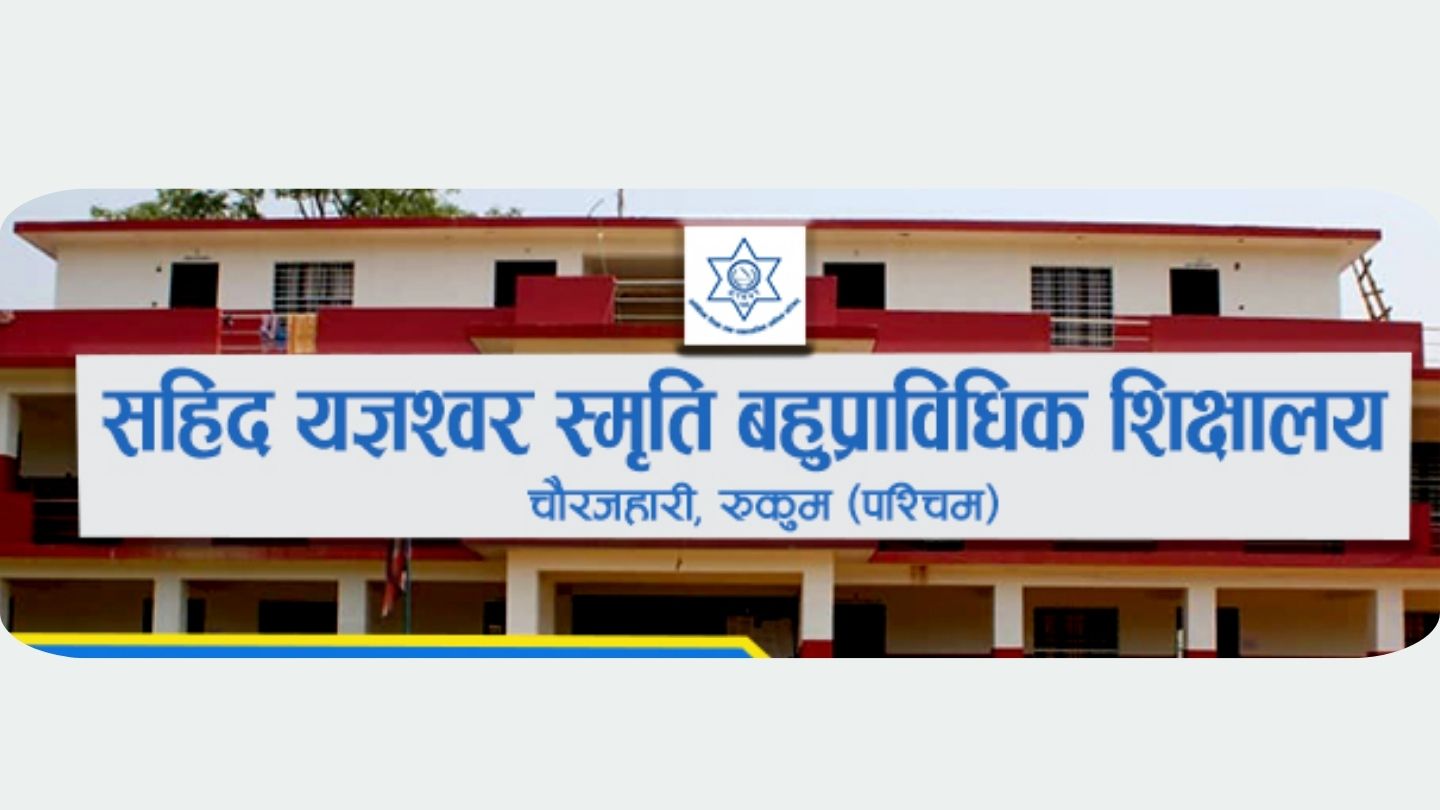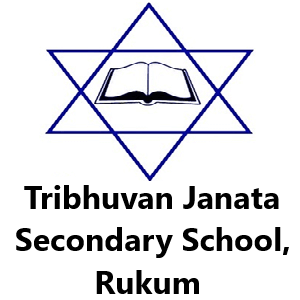Overview
Shahid Yagyashwor Memorial Polytechnic Institute (SYMPI) is a technical and vocational college located in Chaurajahari Municipality-1, Rukum West, Karnali Province, Nepal. Affiliated with the Council for Technical Education and Vocational Training (CTEVT), the institute runs diploma-level programs in Pharmacy, Forestry, Geomatics Engineering, and Computer Engineering. Established in 2018, it serves SEE graduates and working learners who seek practical, industry-relevant skills with clear career pathways.
SYMPI’s purpose is straightforward: offer structured technical education backed by hands-on practice. The college emphasizes safe lab work, field exercises, supervised projects, and guided assessments based on current CTEVT curricula. Students learn in small groups, practice on standard instruments, and receive academic counseling focused on progression to jobs or higher study.
Quick Highlights
-
Location: Chaurajahari-1, Rukum West, Karnali Province, Nepal
-
Affiliation: Council for Technical Education and Vocational Training (CTEVT)
-
Year of Establishment: 2018
-
Academic Level: Diploma/Certificate level (3-year programs)
-
Programs and Approved Seats:
-
Diploma in Pharmacy – 40 seats
-
Diploma in Forestry – 40 seats
-
Diploma in Geomatics Engineering – 48 seats
-
Diploma in Computer Engineering – 48 seats
-
-
Scholarships: Available as per CTEVT and institutional rules (merit and inclusion categories)
-
Facilities: Well-equipped laboratories, workshops, library, computer labs, counseling, hostel (as available), cafeteria, ECA, educational tours
-
Student Support: Orientation sessions, academic advising, career guidance, exam preparation support

Academic Programs Offered
SYMPI follows CTEVT curricula and assessment policies. Each diploma spans three academic years, comprising progressive coursework, practical exercises, and final board examinations. Attendance, internal evaluation, and discipline standards are applied as per CTEVT guidelines.
Diploma in Pharmacy (40 seats)
Program focus: Dispensing practice, community and hospital pharmacy services, pharmaceutical calculations, drug information, basic pharmacology, pharmacognosy, pharmaceutics, and regulatory awareness. Students learn to read prescriptions, maintain accurate records, counsel patients on the correct use of medication, and handle storage in accordance with standard protocols.
Learning components:
-
Fundamentals: Human anatomy and physiology, pharmaceutical chemistry, microbiology basics
-
Practice skills: Dosage form handling, compounding fundamentals, inventory control, cold-chain awareness
-
Patient safety: Prescription audit basics, adverse effect reporting at entry level, documentation discipline
-
Field exposure: Community or institutional placements (as scheduled), pharmacy management basics
Graduate outcomes: Entry-level roles in retail/community pharmacies, hospital dispensaries (under supervision), medical supply outlets, and basic quality control support roles in local contexts, with scope for further study in pharmacy or related fields.
Diploma in Forestry (40 seats)
Program focus: Forest resource management at the local level, community forestry support, nursery and plantation work, biodiversity basics, and field surveying for forest plots.
Learning components:
-
Core knowledge: Silviculture, dendrology, forest mensuration, soil and water conservation basics
-
Applied tasks: Nursery operations, seed handling, plantation layout, thinning, and pruning practice
-
Community linkage: Participatory forestry concepts, conflict sensitivity, basic facilitation in user groups
-
Fieldwork: Forest plot measurement, data sheets, GPS use, and elementary GIS exposure aligned with the curriculum
Graduate outcomes: Technical support roles in community forestry groups, local government forestry sections, nurseries, and conservation projects; preparation for higher study in forestry and environmental areas.
Diploma in Geomatics Engineering (48 seats)
Program focus: Land measurement, mapping, and spatial data handling for local development, planning, and infrastructure tasks.
Learning components:
-
Instruments: Tape, leveling instruments, theodolite/total station basics as per curriculum, GNSS awareness
-
Methods: Traversing, leveling, contouring, area/volume calculation, and topographic mapping workflows
-
Data handling: Map reading, drafting, basic CAD/GIS exposure, coordinate systems, and accuracy checks
-
Practice: Field camps, team roles, data logging and processing, safety and equipment care
Graduate outcomes: Survey assistant/junior surveyor roles in municipal projects, road and irrigation works, cadastral support (as per law and employer requirements), with a pathway to advanced study in geomatics/engineering.
Diploma in Computer Engineering (48 seats)
Program focus: Fundamental computing, programming, hardware basics, networking, and applied projects aligned with local industry needs.
Learning components:
-
Core subjects: Programming fundamentals, database basics, operating systems, computer networks
-
Hardware and labs: PC assembly/maintenance, peripherals, fault diagnosis at entry level
-
Projects: Team projects using standard tools, documentation, versioning discipline, basic presentation skills
-
Practical orientation: Simple web/app assignments aligned with curriculum and lab resources
Graduate outcomes: Entry-level roles such as junior technician, lab assistant, support technician, or trainee developer, with scope for further study in computing and IT disciplines.
Admission Process
SYMPI follows the annual CTEVT admission cycle. Applicants should track official notices from CTEVT and the institute.
Typical steps:
-
Eligibility check: SEE or equivalent with subject-wise conditions as per program and CTEVT rules.
-
Application: Fill the form within the announced deadline (online/offline, as directed).
-
Entrance and merit: Sit for the CTEVT entrance (where applicable). Seats are filled based on merit lists and quotas published by CTEVT/provincial offices and the institute.
-
Document verification: Academic credentials, citizenship, photographs, and other required documents.
-
Enrollment: Pay fees as per category and program; attend orientation.
Note:
Seat allocation, quotas (open/inclusive), and required scores follow CTEVT directives. Applicants should keep copies of all forms and receipts.
Teaching Faculty and Learning Methodology
SYMPI engages qualified faculty as per CTEVT norms, with guest instructors for specialized topics where required. Teaching blends classroom instruction, supervised lab/field work, demonstrations, and guided assignments.
Methodology at a glance:
-
Structured lesson plans tied to curriculum units
-
Lab practicals with pre-lab briefings and safety checklists
-
Field exercises in forestry and geomatics with standard formats for data collection
-
Project-based learning in computer labs with basic documentation standards
-
Pharmacy practicums focusing on dispensing steps, labeling, storage, and record-keeping
-
Regular internal assessments and constructive feedback
-
Review classes before board and practical examinations
Infrastructure and Learning Facilities
-
Laboratories and Workshops: Subject-specific labs for pharmacy, forestry, geomatics, and computing. Instruments and consumables are updated as per curriculum needs and maintenance schedules.
-
Computer Labs: Internet-enabled labs for programming, database practice, and basic CAD/GIS exposure as resources allow.
-
Library: Course textbooks, reference materials, past question sets, basic standards/guidelines where applicable, and study spaces.
-
Classrooms: Ventilated rooms with seating suited for small and medium groups.
-
Hostel (as available): Accommodation support for students from remote areas; seats may be limited.
-
Cafeteria: Hygienic meals and snacks during class hours.
-
Safety and First Aid: Basic safety instructions in labs, first-aid kits, and equipment handling rules.
-
Counseling and Support: Academic counseling, timetabling guidance, and exam preparation tips.
Student Life and Campus Experience
SYMPI maintains a study-focused environment where academic work is balanced with peer learning and practical exposure.
-
Students attend orientation at the start of each session.
-
Timetables are shared with clear lab/field schedules.
-
Faculty encourage group study, lab notebooks, and disciplined submission of assignments.
-
The campus culture values punctuality, respect, and responsible use of equipment.
Extracurricular Activities (ECA)
Beyond classes, students gain exposure through structured activities that strengthen confidence and real-world readiness.
-
Clubs and Events: Subject clubs, technical talks, demonstration days.
-
Educational Tours: Field visits aligned with program needs—nurseries and community forests; local survey sites; industry visits where possible.
-
Social Engagement: Tree planting, cleanliness drives, or awareness sessions coordinated with local bodies.
-
Competitions: Quiz, report presentation, simple coding or drafting tasks tied to coursework.
Scholarships and Financial Support
Scholarship provisions follow CTEVT and institutional rules. Categories may include merit-based and inclusion-based quotas as per annual notices.
How to apply for scholarships:
-
Review eligibility in official admission circulars.
-
Submit required documents within the deadline.
-
Track the provisional and final scholarship lists published by the authority and institute.
Students are advised to maintain strong attendance and academic discipline, as many scholarships require satisfactory progress.
Achievements and Institutional Milestones
-
2018: Establishment of SYMPI in Chaurajahari-1, Rukum West, with CTEVT affiliation.
-
Program Expansion: Launch of four diploma programs—Pharmacy, Forestry, Geomatics Engineering, and Computer Engineering.
-
Laboratory Development: Progressive enhancement of subject labs and workshops in line with curriculum needs.
-
Community Linkage: Orientation programs, educational tours, and local engagement activities reported across sessions.
-
Academic Consistency: Regular participation in CTEVT assessments and practical examinations with structured internal evaluation.
Why Choose This Institution?
-
CTEVT-Affiliated Programs: Recognized curricula with clear assessment and certification processes.
-
Balanced Learning: Classroom theory backed by practicals, fieldwork, and supervised projects.
-
Accessible Location: A regional option for Karnali and neighboring districts, reducing relocation costs for many families.
-
Focused Intake: Defined seat numbers that support closer supervision in labs and workshops.
-
Scholarship Avenues: Merit and inclusion categories available as per annual notices.
-
Support Services: Orientation, counseling, exam preparation help, and career guidance.
-
Facilities that Matter: Subject-specific labs, computer facilities, library, and hostel support, where available.
Conclusion
Shahid Yagyashwor Memorial Polytechnic Institute offers a structured diploma education for learners seeking practical skills and a clear pathway to employment or further study. With CTEVT affiliation, defined seat numbers across four programs, and a study environment built around lab work and field practice, the institute gives students a reliable platform to build technical competence.
Prospective applicants should follow CTEVT and institute notices for admission timelines, quotas, and documentation. Families seeking an affordable, skills-focused option in Karnali Province will find SYMPI’s program mix, basic facilities, and steady academic processes well aligned with local and national workforce needs.
For current admission dates, fee details, hostel availability, and scholarship categories, contact the administrative office of Shahid Yagyashwor Memorial Polytechnic Institute or consult the latest CTEVT circulars.













